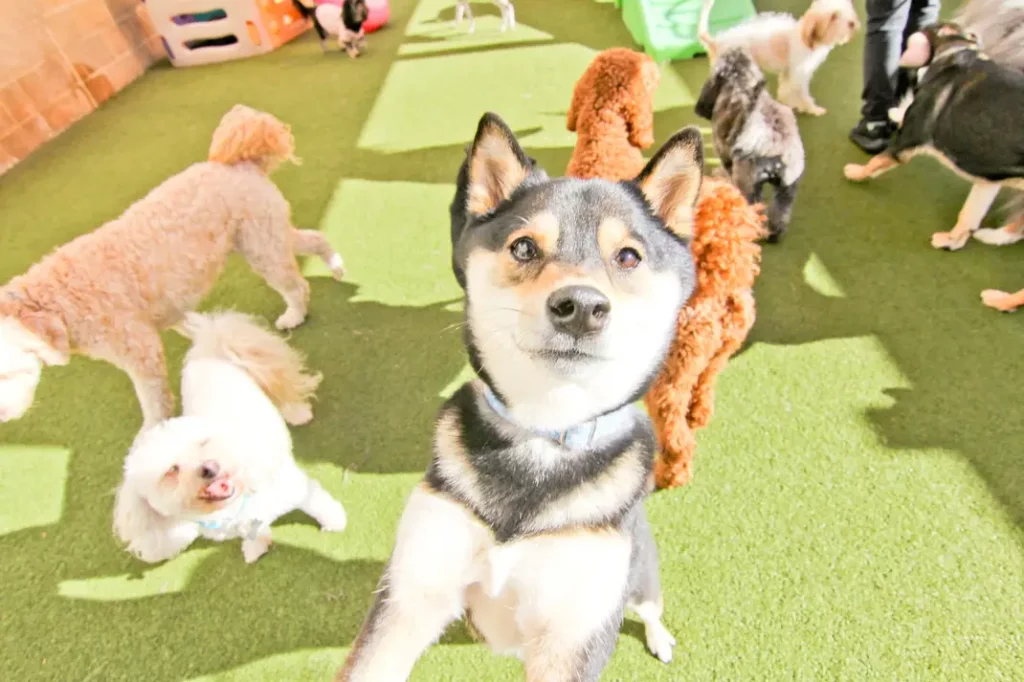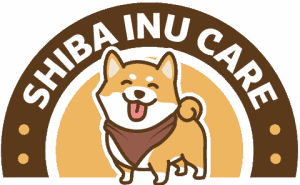This post contains affiliate links.
When considering a Shiba Inu as your furry companion, it’s essential to be aware of common health concerns in the breed. One such issue you might be curious about is cataracts, a condition that affects the lens of the eye and can impair vision.
As a Shiba Inu owner or prospective owner, you should know that cataracts can indeed develop in this breed, though it’s not as prevalent as in some other breeds. Early detection and regular check-ups with a veterinarian will be critical in managing the health of your pup’s eyes, ensuring they enjoy a high quality of life.

While it’s essential to stay informed about cataracts and other potential health risks, don’t let this deter you from adoring this spirited and loyal breed. By taking proactive steps to maintain your Shiba Inu’s overall health, you can provide them with a happy and fulfilling life by your side.
What Are Cataracts?
Cataracts are a common eye condition where the lens of your eye becomes cloudy, causing blurry or distorted vision. This can lead to difficulty seeing and may even result in complete vision loss if left untreated. Cataracts typically develop slowly, so you might not notice any vision problems right away.
What Causes Cataracts?
There are several factors that can contribute to the development of cataracts, including:
- Age: Some cataracts appear to occur spontaneously and are age related
- Diabetes: Cataracts can occur as a complication of diabetes mellitus.
- Genetics: If your Shiba’s family has a history of cataracts, their more likely to develop them yourself.
- Health issues: Certain medical conditions, such as diabetes and high blood pressure, can increase the risk of developing cataracts.
- Trauma: Cataracts can be caused by injuries to the eye.
Remember, it’s essential to schedule regular check-ups with your pet’s vet, especially if they have any of these risk factors or notice any changes in their vision.
Do Shiba Inus Commonly Suffer From Cataracts?
While Shiba Inus are not predisposed to cataracts more than other breeds, they can still develop eye problems like any other dog. In fact, Shiba Inus are more commonly affected by glaucoma – a disease that damages the optic nerve and leads to vision loss.
Although this issue is more prevalent than cataracts, it’s important to be aware of both conditions if you have a Shiba Inu.
Common Signs And Symptoms Of Cataracts In Shiba Inus
- Cloudiness in one or both eyes
- Bumping into objects
- Difficulty seeing in different light conditions
- Excessive squinting or blinking
If you observe any of these symptoms, it’s crucial to consult your veterinarian for a proper diagnosis.
How Cataracts Are Diagnosed In Dogs
- Perform a thorough eye examination
- Use specialized equipment to have a closer look at the lens
- Check for other underlying health issues
Your veterinarian may also refer your dog to a veterinary ophthalmologist for further evaluation and treatment.
Common Cataract Treatment Plans For Shiba Inus
Treatment for cataracts in Shiba Inus usually includes:
- Medications: Anti-inflammatory eye drops are often prescribed to manage inflammation and prevent complications.
- Surgery: An ophthalmologist may perform surgery to remove the cataract and replace the lens with an artificial one. This procedure significantly improves vision in most dogs.
- No treatment: In cases where the cataracts are small and don’t significantly affect vision, your vet might recommend monitoring the condition without intervention.
Remember, regular check-ups and a healthy lifestyle for your Shiba Inu are key to preventing and managing eye problems.
What Can I Do To Prevent My Shiba From Developing Cataracts?
Stick To A Lean And Healthy Diet
Your Shiba Inu’s diet plays an important role in maintaining their overall health. Providing them with a lean and balanced diet helps prevent obesity-related health conditions that could contribute to the development of cataracts.
Aim for a diet rich in antioxidants and omega-3 fatty acids, as these nutrients are beneficial for your Shiba’s eye health. Here are some suggestions for what to include:
- High-quality kibble: Choose a kibble that does not contain artificial preservatives or fillers.
- Fruits and vegetables: Blueberries, kale, spinach, and carrots are some dog-friendly options packed with antioxidants.
- Omega-3 rich foods: Add fish oil or flaxseed to your Shiba’s diet for a good source of omega-3 fatty acids.
Promote A Healthy Lifestyle
A healthy lifestyle goes hand in hand with a healthy diet. Clean surroundings and regular exercise can work wonders in staving off numerous health issues, including cataracts. Here’s what you can do:
- Cleanliness: Keep your Shiba’s sleeping area, toys, and food bowls clean to minimize the risk of infections.
- Exercise: Encourage your companion to engage in daily physical activities, such as walks, runs, or agility training.
Go To Your Vet For Routine Checkups
One of the best ways to prevent your Shiba Inu from developing cataracts is to keep up with routine veterinary checkups. Regular visits to your vet can identify potential health issues early on, which can help to improve the relative health of your dog’s eyes and overall well-being. Some recommendations include:
- Annual examinations: Your vet should assess your Shiba’s eye health during their yearly checkups.
- Discuss preventive measures: Talk to your vet about any additional steps you can take to maintain your Shiba’s eye health.
- Monitor changes: Keep an eye on your Shiba’s vision and report any concerns to your veterinarian promptly. Immediate action can help prevent further complications.
Summary
It’s no secret that Shiba Inus are prone to certain health issues, and when it comes to their eyes, cataracts are one of the concerns. Cataracts can occur in these cute little dogs just like they do in humans.
Essentially, a cataract occurs when the lens in the eye becomes cloudy, hindering vision. Now, the interesting part is that Shiba Inus are also at risk for another eye condition called Progressive Retinal Atrophy (PRA).
PRA is a genetic, hereditary disease that causes the cells in the retina to deteriorate over time, eventually leading to blindness. It’s important to be aware of this because PRA can sometimes be mistaken for cataracts, given the similar symptoms.
While there’s no country where cataracts or PRA is solely found in Shiba Inus, it is a concern for Shiba Inus all around the world. However, some countries may implement more stringent breeding standards to minimize the risk.
This alone should encourage you to choose a reputable breeder if you’re considering bringing a Shiba Inu into your home. As a Shiba Inu owner, your best bet is to monitor your dog’s eye health closely and look out for signs of vision problems.
If you do notice anything unusual, don’t hesitate to consult with your veterinarian as early intervention could make a significant difference in your dog’s quality of life.
Remember that although cataracts and PRA are a concern for Shiba Inus, many live healthy and happy lives with proper care and regular check-ups. So stay proactive in your pet’s care, and enjoy the delightful companionship your Shiba Inu offers.
Frequently Asked Questions
When Do Shiba Inus Start Developing Cataracts?
Shiba Inus can start developing cataracts at any age, but it’s more common for them to develop in middle-aged to older dogs. It’s essential to regularly monitor your Shiba Inu’s eyes and consult with your vet if you notice any cloudiness or changes in their vision.
Are Shiba Inus Prone To Glaucoma?
Glaucoma is a serious eye condition that can lead to blindness if left untreated. Keep an eye out for symptoms like excessive tearing, redness, or a change in the appearance of your Shiba Inu’s eye. If you suspect glaucoma, take your dog to the vet immediately.
What Is The Most Common Problem With Shiba Inu?
Shiba Inus are generally healthy dogs, but they can suffer from certain health problems, including hip dysplasia, allergies, and eye issues like cataracts. Regular checkups, a healthy diet, and exercise can help keep your Shiba Inu in top shape.
What Are Some Common Eye Issues In Shiba Inus?
Some common eye issues in Shiba Inus include cataracts, glaucoma, and progressive retinal atrophy (PRA). Regularly examine your dog’s eyes and contact your vet if you notice any issues. Early detection and treatment can help maintain your Shiba Inu’s vision and overall eye health.
